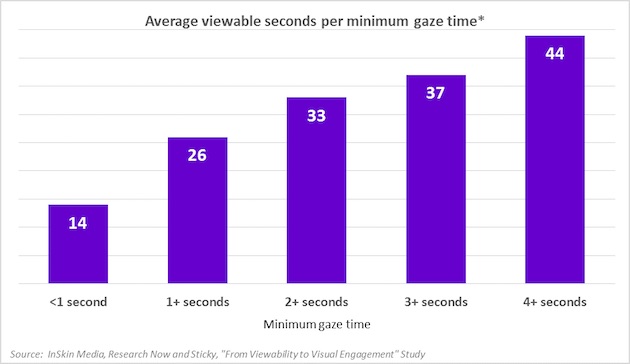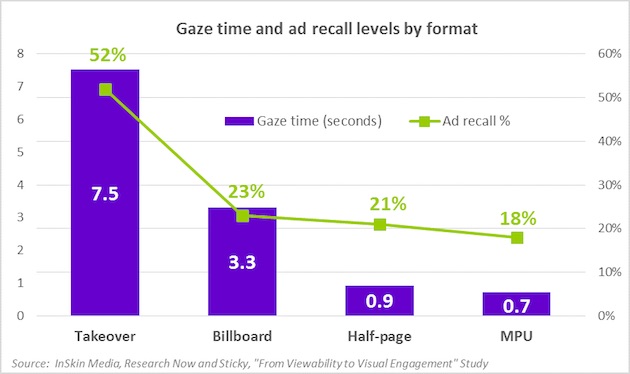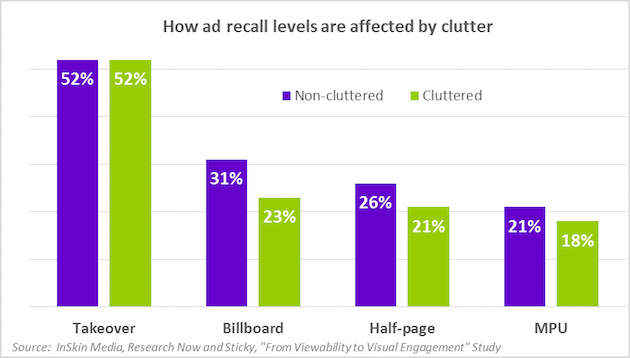An online display ad needs to be visible on a webpage for 14 seconds, on average, in order for a consumer to gaze at it for one full second, according to recent research from InSkin Media, Research Now, and Sticky.
The report was based on data from an eye-tracking and viewability measurement study involving 696 consumers. The researchers also surveyed 4,279 consumers in the United Kingdom.
Online ads that appear on webpages for less than 14 seconds garner less than one second of gaze time (i.e. dedicated interest), on average.
To achieve two seconds of gaze time, an ad must be present on a page for 33 seconds, on average, the analysis found.

Even when they are seen, the amount of time people spend looking at online advertisements varies significantly by format.
For example, study participants spent 7.5 seconds, on average, looking at takeover ads, whereas they spent only 0.7 seconds looking a mid-page unit (MPU) display ads.

Ad gaze time decreases 37%, on average, and ad recall decreases 20%, on average, if a page is cluttered (filled with content and other ads).

About the research: The report was based on data from an eye-tracking and viewability measurement study involving 696 consumers. The researchers also surveyed 4,279 consumers in the United Kingdom.




